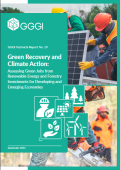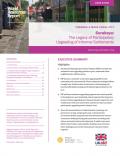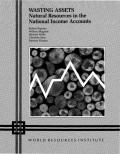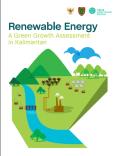
This case study is about assessing the employment benefits of implementing Nationally Determined Contributions in GGGI Member developing and emerging economies.
While the social and economic effects of COVID-19 are likely to last for many years, careful recovery planning can mitigate negative long-term impacts. For Indonesia, reassessing its reliance on coal for electricity would be an important step in the country’s green recovery.

This case study explores Indonesia’s inclusive housing policy and how the Kampung Improvement Program (KIP) became a model for in situ slum upgrading efforts both nationwide and internationally.
USAID LESTARI partners with the Government of Indonesia (GOI) to reduce greenhouse gas (GHG) emissions and conserve biodiversity in carbon rich and biologically significant forest and mangrove ecosystems. This brief focuses on supporting Green Enterprises to enhance sustainable livelihood opportunities for local communities, including a summary of the initiatives that were undertaken, the main outcomes and impacts, and the key lessons learned from 5 years of implementation.
This report presents the results of the testing of the GBEP indicators in Indonesia. The testing provided Indonesia with an understanding of how to establish the means of a long-term, periodic monitoring of its domestic bioenergy sector based on the GBEP indicators.
This study examines how ecosystem services can be valued and mapped and presents a case study for Central Kalimantan, Indonesia.
This report examines the potential policy uses of the different varieties of resource and environmental accounts, particularly greener national accounting aggregates such as genuine savings and 'Eco-Domestic Product'.

This report demonstrates that natural resources can be treated similarly to capital in national accounts, and it argues that these accounts should be revised. Using data from Indonesia, the study provides a concrete example of how the revised accounts would work and what signals the new results would give to those who make decisions about economic development.
This case study, From Digging to Planting: A Sustainable Economic Transition for Berau, East Kalimantan, produced as part of Project LEOPALD or Low Emissions Oil Palm Development examines whether palm oil’s potential as an economic driver will bear out for Indonesia’s goals, using Berau as an example case.

This report, Renewable Energy: A green growth assessment in Kalimantan, assesses the monetary costs and benefits associated with renewable energy projects in Central and East Kalimantan.
